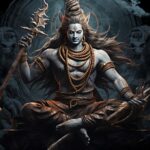Black magic spells have fascinated and terrified people for centuries, weaving tales of mystical powers and malevolent forces. The mere mention of black magic conjures images of dark rituals, sinister incantations, and supernatural influence. While black magic spells are deeply rooted in folklore and cultural beliefs, it’s essential to separate myth from reality. In this exploration, we delve into the history, beliefs, practices, and ethical considerations surrounding black magic spells.

Historical Context:
The history of black magic spells is as diverse as the cultures that have embraced or feared them. Throughout history, societies across the globe have practiced various forms of magical rituals, often associated with both benevolent and malevolent intentions. Ancient civilizations such as the Egyptians, Greeks, and Romans had their own versions of magical practices. In medieval Europe, the fear of witchcraft and black magic reached its peak during the witch hunts.
Cultural Beliefs and Practices:
Different cultures have unique interpretations of black magic, and the practices associated with it vary widely. In many societies, black magic is considered a forbidden and taboo art, with practitioners often ostracized or even persecuted. Some believe in the power of curses and hexes, viewing them as potent tools for revenge or gaining an upper hand in personal or professional matters.
However, it’s crucial to note that the perception of black magic spells varies significantly. While some cultures view them with suspicion and fear, others embrace these practices as part of their spiritual and magical traditions. In some cases, black magic is seen as a means of harnessing supernatural forces for self-defense or protection against evil entities.
Common Elements of Black Magic Spells:
Black magic spells typically involve rituals, chants, and the use of specific objects believed to possess mystical properties. Ingredients such as herbs, crystals, candles, and symbolic items are often incorporated into these rituals. The intention behind these spells varies widely, ranging from causing harm to enemies, manipulating love interests, or seeking personal gain.
Some common elements found in black magic spells include the invocation of dark entities or deities, the use of sacred symbols, and the casting of spells during specific celestial events, such as full moons or eclipses. Practitioners often claim that the alignment of these elements enhances the effectiveness of their spells.
Ethical Considerations:
The ethical implications of black magic spells are a contentious topic. While some argue that these practices infringe upon the free will of others and can lead to harmful consequences, others view them as a legitimate expression of personal power and spiritual beliefs. The debate over whether black magic is inherently malevolent or simply a tool for manifesting intentions underscores the ethical complexity surrounding these practices.
Many modern magical practitioners, regardless of their tradition, emphasize the importance of ethical considerations. Some believe in the threefold law, which suggests that any energy or intention put into the universe will return to the sender threefold. This principle serves as a cautionary guideline for those engaging in magical practices, reminding them to be mindful of the potential consequences of their actions.
Dangers and Misconceptions:
While black magic spells may evoke a sense of danger and intrigue, it’s crucial to approach the topic with a critical mindset. Many misconceptions surround black magic, often fueled by sensationalized media portrayals and cultural stereotypes. The reality is that the practice of black magic, like any form of magic, depends largely on the intentions and beliefs of the practitioner.
Engaging in black magic spells without proper knowledge or understanding can have unintended consequences. The psychological impact of believing in the efficacy of a curse or hex can influence one’s thoughts and behaviors, creating a self-fulfilling prophecy. Additionally, the fear and stigma associated with black magic can lead to social isolation and discrimination for those practicing these traditions.
Conclusion:
Black magic spells, rooted in a rich tapestry of cultural beliefs and historical practices, continue to captivate the human imagination. Whether viewed with fear, fascination, or skepticism, it’s essential to approach the subject with an open mind and a discerning perspective. The ethical considerations surrounding black magic underscore the importance of responsible magical practices and a deeper understanding of the complexities inherent in the realm of mysticism. As we navigate the intricate web of beliefs and practices surrounding black magic, it becomes evident that separating fact from fiction is a challenging yet necessary endeavor in our quest for a more enlightened understanding of the mystical and magical aspects of human culture.



Leave a Reply